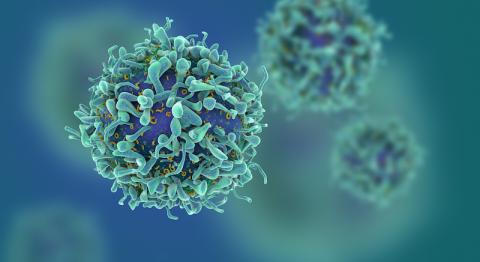
UK company Emergex has announced that it is due to embark on clinical trials of a new COVID-19 vaccine in the form of a skin patch.
It is hoped that the patch could offer longer-lasting protection against the virus, as it is designed to generate a response from T-cells, part of the immune system that kills infected cells. In contrast, vaccines currently in use in the UK are designed primarily to generate an antibody response, which stops the virus from infecting the body’s cells. These vaccines also produce a T-cell response, but to a lesser degree.
Emergex has been given approval by the Swiss medicines regulator to undertake trials that will see 26 people be given different doses of the vaccine. The trials will start early next year and first results are expected in the summer.
One of the drawbacks of the Pfizer and AstraZeneca vaccines currently being used in the UK is that their antibody response decreases over time, resulting in the need for booster shots to ensure continued protection. The scientists behind the new patch hope it could offer immunity lasting for decades, and may also be effective against mutations.
The thumbnail-sized patch designed by Emergex uses tiny gold particles coated in peptides (bits of proteins) designed to provoke a T-cell response from the immune system. The patch is covered in micro-needles that release the shot within seconds of it being applied. Another benefit is that it can be stored for up to three months at room temperature, removing the need for cold storage necessary with many other vaccines.
Robin Cohen, Chief Commercial Officer at Emergex Vaccines, commented:
Our T Cell priming vaccines may offer significant benefits over current COVID-19 vaccines including longer-lasting immunity and broader protection against new variants. We are proud to announce the initiation of this trial and look forward to gathering data to support the development of this important next generation vaccine.
Professor Blaise Genton, Principal Investigator for the trial from the Center for Primary Care and Public Health (Unisante) at the University of Lausanne, Switzerland commented:
Although current COVID-19 vaccines have made significant progress in reducing mortality and morbidity challenges still remain, especially with the development of new variants. This exciting new scientific approach to developing a vaccine against SARS-CoV-2 addresses the need to generate a T-Cell response to elicit long term immunity. We look forward to evaluating the results when they are available.
